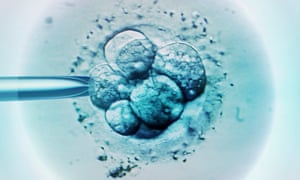Arian Horton
The Guardian
Originally published 2 Dec 20
Here ate two excerpts:
The database unmasked, with detached clarity, a dark secret hidden in plain sight for decades: the physician once named Nevada’s doctor of the year, who died in 2006 at age 94, had impregnated numerous patients with his own sperm, unbeknownst to the women or their families. The decades-long fertility fraud scheme, unspooled in the HBO documentary Baby God, left a swath of families – 26 children as of this writing, spanning 40 years of the doctor’s treatments – shocked at long-obscured medical betrayal, unmoored from assumptions of family history and stumbling over the most essential questions of identity. Who are you, when half your DNA is not what you thought?
(cut)
That reality – a once unknowable crime now made plainly knowable – has now come to pass, and the film features interviews with several of Fortier’s previously unknown children, each grappling with and tracing their way into a new web of half-siblings, questions of lineage and inheritance, and reframing of family history. Babst, who started as a cop at 19, dove into her own investigation, sourcing records on Dr Fortier that eventually revealed allegations of sexual abuse and molestation against his own stepchildren.
Brad Gulko, a human genomics scientist in San Francisco who bears a striking resemblance to the young Fortier, initially approached the revelation from the clinical perspective of biological motivations for procreation. “I feel like Dr Fortier found a way to justify in his own mind doing what he wanted to do that didn’t violate his ethical norms too much, even if he pushed them really hard,” he says in the film. “I’m still struggling with that. I don’t know where I’ll end up.”
The film quickly morphed, according to Olson, from an investigation of the Fortier case and his potential motivations to the larger, unresolvable questions of identity, nature versus nurture. “At first it was like ‘let’s get all the facts, we’re going to figure it out, what are his motivations, it will be super clear,’” said Olson.






/cdn.vox-cdn.com/uploads/chorus_image/image/65523497/shutterstock_99693284.0.0.1430770199.0.jpg)








